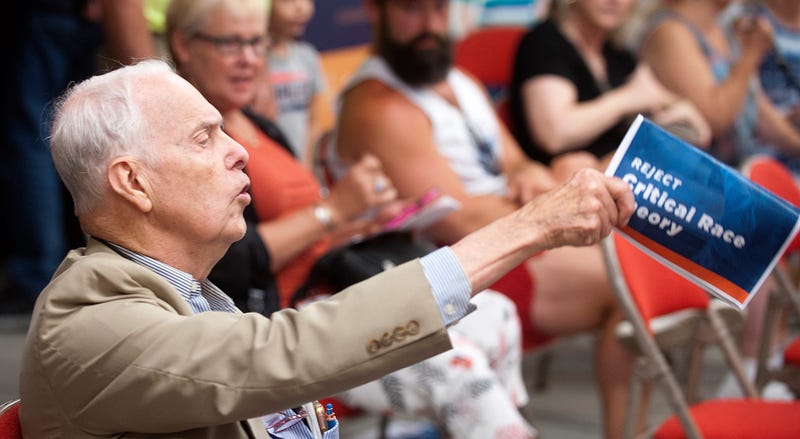
Discussions of critical race theory and transgender issues led to two arrests in suburban Virginia this week, according to the The Hill.
Loudoun County police confirmed in a daily incident report that an altercation in the county School Board room erupted Tuesday when a man physically threatened another attendee. When a deputy tried to intervene, the subject was disorderly with them, said the report. He was then charged with disorderly conduct and resisting arrest.
Police said the man, identified by WJLA as Scott T. Smith of Leesburg, VA, was released on bond.
In addition to Smith’s arrest, the Superintendent of Loudoun County Public Schools declared the meeting an unlawful assembly and directed attendees to leave. Another man refused to leave and was detained by police and released on a summons for trespassing by order of Loudoun County Public School Officials.
A policy concerning transgender rights was included in the school board’s June 22 agenda.
The school recently made headlines after a teacher spoke out against the policy.
According to Slate, unruly parents at the Loudoun County meeting were also part of a group called Parents Against CRT, or critical race theory. People against this theory also derailed a Kentucky school board meeting, according to the Courier-Journal.
Getting people angry at school board meetings may actually be one of the goals behind recent discussions of critical race theory by Republicans.
What is critical race theory?
According to Encyclopedia Britannica, critical race theory is an “intellectual movement and loosely organized framework of legal analysis based on the premise that race is not a natural, biologically grounded feature of physically distinct subgroups of human beings but a socially constructed (culturally invented) category that is used to oppress and exploit people of [color].”
Race is identified as an ideology and many scientists regard it as a social construct rather biological one, explains the National Human Genome Research Institute.
Those who study critical race theory examine how law and legal institutions in the U.S. create and maintain social, economic, and political inequalities between whites and nonwhites, said Encyclopedia Britannica.
Why are people talking about it?
In a recent interview with MSNBC, reporter Ben Collins said that critical race theory is not really taught at the elementary school level, despite claims from Republican think tanks such as the Heritage Foundation. He said recent interest in the theory from the Republican party is part of an effort to put “everything Americans find annoying,” into one concept and to get people angry enough to run for local school board elections.
Political analyst Juanita Tolliver added that the use of critical race theory backlash is part of an effort to recruit new Republican candidates to run at local levels in the style of Marjorie Taylor Greene, who is influenced by the QAnon conspiracy theory. It also signals a move further into “the extremist lane” for Republicans, said Tolliver.
Apart from Collins and Tolliver, several outlets have explored the Republican effort to drum up outrage about critical race theory in schools.
Politico reported Wednesday that Steve Bannon and other former Trump aides planned to use critical race theory backlash as a way to gain political power. A New Yorker piece explored how conservative activist Christopher Rufo helped popularize the term.
Republican politicians, including Texas Sen. Ted Cruz and Nebraska Gov. Pete Ricketts have also spoke out against critical race theory.
According to a June 23 report by the Morning Consult, the push has apparently worked with Republicans. Results show that 30 percent of GOP voters said they’ve seen, read or heard a lot about critical race theory, compared with 21 percent of Democrats. Additionally, 48 percent of GOP voters view critical race theory negatively, including 42 percent who do so strongly.



